|
Should I Buy SPY. Investors Ask Natalie. Recently, we’ve had a lot of people ask if they should just invest in an S&P500® index fund. Here are 6 reasons why SPY can be a part of a well-designed plan, but should not fly solo. Investing is more than just buying SPY. Buying an S&P500® index fund is certainly better than not buying anything at all. However, if that’s our only investment, we could be: · Paying an arm and a leg in capital gains taxes · Riding a Wall Street rollercoaster · Missing out on hot industries · Investing in polluters and companies you don’t want to support Below are a few additional points to incorporate into our wealth plan. Invest in Tax-Protected Retirement Accounts The Power of Compounding Gains Diversify Keep a Percentage Equal to Your Age Safe Rebalance Once, Twice or Three Times a Year Green Investing And here is more information on each point. Invest in Tax-Protected Retirement Accounts Rich people don’t invest in regular brokerage accounts. They invest within their tax-protected retirement accounts. Peter Thiel reportedly has over $5 billion in his Roth IRA. The tax advantages are tremendous. When you invest in your brokerage account, you’re going to have to pay capital gains taxes anytime you sell for a profit. That doesn’t happen when you capture gains within your 401(k) or IRA, or for Canadians in their RSP or TPSA. Why not just Buy & Hold and never sell? As we age, we need to keep more safe. 21st recessions have seen the S&P500 lose more than half, and then take a lot of the bull market to crawl back to even. (It took the NASDAQ Composite Index 15 years to crawl back above 5000 after the Dot Com Recession.) As we get closer to retirement, we just can’t afford to lose that much. Everyone, even young professionals, experiences financial chaos or worse if their net worth drops significantly. Our FICO score plunges, and we might have to endure severe financial hardships, while we hope and pray to make up losses. It’s a good idea to have an IRA in addition to a 401(k), so that we are able to get better diversified. (Americans should also consider a Health Savings Account.) 401(k)s often have very limited options for investing and tie up our money while we work. Individual accounts allow us to invest in industries that might be very hot, like artificial intelligence, cyber security, electric vehicles or clean energy. Regular rebalancing with low or no trading fees are also hallmarks of IRAs that are held at an online discount brokerage. The Power of Compounding Gains A lot of people think they should wait until they pay off all their debt before they start investing. While we want to have a plan for paying off our debt, if that is all that we’re doing, we’re missing out on the power of compounding gains and increasing our wealth. As you can see in the chart below, even if we are only earning $40,000 a year, if we invest and earn a 10% annualized gain, we’ll become a millionaire by the time we retire. Investing is the best ticket to financial freedom. You might think that earning 10% annualized gains is a pipe dream, and over the next few years it probably is. (Our pie chart strategy is a lifesaver in slow growth and bear markets.) However, as you can see in the chart below, stocks earned 10% annualized over the last 30 years (if you had small caps in addition to large caps), bonds performed at 5-6% gains, and real estate was a shining star with over 8% annualized gains. So, adhering to the plan can make us a millionaire, even if we come from modest means. (We discuss the importance of investing in real estate at our retreat and in my books.) Since the assets to debt ratio is 30% of our FICO score, investing helps to improve our debt situation. Money in our retirement accounts is safe from most debt collectors, as well. A debt problem is a budgeting problem. If we don’t have enough money to fund our retirement accounts, then we need to learn more about how to adopt a Thrive Budget. (There’s a section in my book The ABCs of Money, 5th edition.) Smarter big-ticket choices are the key. Few of us are shopaholics. Many meme stock investors lost so much money that they’ve lost their enthusiasm for investing. Others are convinced they can get rich quickly with options. Meme stocks, options and individual companies are better thought of as education or fun money, rather than money while we sleep (our nest egg). They require a lot of due diligence and babysitting, and are higher risk than funds are. Diversify A well-diversified plan protects our wealth, earns a safe yield and enjoys tax-free capital gains. In bull markets, growth and capital gains can be king. In bear markets, we’ll be glad we kept enough safe (and that we know what’s safe in a Debt World). Having both value and growth funds allow us to buy on sale, while also investing in hot new industries. Trillion dollar companies add stability to our plan, while small caps add performance. Four hot slices allow us to overweight into industries that we think are going to outperform. On the other hand, if we are just investing in a SPY index, we only have one slice of the pie represented – a large cap blend fund. It’s difficult to see and capture gains when we’ve only got one fund. That puts us at risk of losing half or more of our wealth in 21st Century recessions. We teach these strategies in our online financial freedom retreats. The next one is October 7-9, 2023. Join us! Keep a Percentage Equal to Our Age Safe It’s important to keep a percentage equal to our age safe, money that is not invested in stocks, funds, equities, or anything that has a chance of losing money. Ideally, the safe side also earns some interest. When there are expectations of a bear market or a recession, it’s a good idea to overweight even more safe to protect our wealth. In today’s world, where long-term government bonds lost more than the S&P500® last year, it’s also important to know what is safe. With over half of the S&P500 at or near junk-bond status, there is a lot of credit risk in the world. And, clearly, if bonds are losing money, bonds and bond funds are not doing what they are supposed to do. The safe side of our portfolio is supposed to protect our principle. Getting safe is tricky in today’s world. There are a few opportunities to earn a safe yield. However, we must be strategic about it. (Think short-term and high creditworthiness.) Some of the best areas to earn a fantastic, safe yield are investments that our broker/salesman cannot sell us. We go over all of these safe strategies on day 3 of our Investor Empowerment Retreat. Rebalance Once, Twice or Three Times a Year Rebalancing is a very important part of our strategy. Each year we get a year older, and the percentage that we need to keep safe increases. As we get closer to retirement, we really can’t afford to have so much money riding on the Wall Street Roller Coaster. Regular rebalancing allows us to capture gains, in addition to making sure that we are preserving enough of our principle and staying properly diversified. Our pie chart system makes it very easy to rebalance. When a slice of our pie becomes two or three slices, it’s begging us to sell high. When a slice becomes a sliver, it’s prompting us to buy low. In this way we put our emotions on the right side of the trade. Without a time-proven system, our emotions can prompt us to do the opposite of what we should be doing. At the bottom of recessions, most people are tempted to sell low. At the end of a bull run, the headlines are screaming about the massive gains and everyone wants to buy in high. Green Investing The S&P500 Index does not screen out polluters. So if we’re interested in investing in companies that are healing the planet and divesting our holdings of companies that are harming the environment, we can’t just invest all of our nest egg in the SPY. The S&P Global E.S.G. index doesn’t work either. It’s actually missing the E (environment). There are no green companies in the index, and at least 20% are oil, natural gas, plastic, and chemical companies, and the industries that service them. Investing green is not as easy as just investing in self-proclaimed ESG or socially conscious fund companies. This is another thing that we cover in our Financial Freedom Retreat. Bottom Line This may sound like a lot of work, but it really is the life math that we all should’ve received in high school. The strategy is as easy-as-pie-chart, and the time commitment can be as small as one day a year, once we learn the system. Just as we must decide what kind of home we want to live in before we buy it, there’s a lot that goes into designing our dream financial home. However, once it is built, we get to move in and live there, knowing that we are safe and secure from any economic storms on the horizon. Wisdom is the cure and the time is now to know exactly what we own and why, and to have a properly diversified and protected plan in place. You can learn about this at our online Investor Empowerment Retreat October 7-9, 2023. If you are interested in receiving an unbiased 2nd opinion before you go away on vacation, call 310-430-2397 or email [email protected] for pricing and information. Our unbiased 2nd opinion details exactly what you own, with color codes to show you what’s toxic in your portfolio, what’s great, and what should be better diversified. You will have a blueprint of how to get safe, protected, hot and diversified. Why is it unbiased? We don’t sell financial products. We have no incentive to sell you something that might lose money or that you don’t need. Our business model is financial education, providing the news, information, and education that Main Street investors need to thrive and live a richer life.  Join us for our Online Financial Freedom Retreat. Oct. 7-9, 2023. Email [email protected] to learn more. Register by July 31, 2023 to receive the best price. Click for testimonials, pricing, hours & details.  Join us for our Restormel Royal Immersive Adventure Retreat. March 8-15, 2024. Email [email protected] to learn more. Register with friends and family to receive the best price. Click for testimonials, pricing, hours & details. There is very limited availability, and you must register early to ensure that you get the exact room you want! This retreat includes an all-access pass to all of our online training for a full year for two! 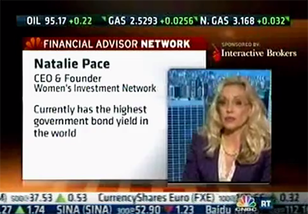 Natalie Wynne Pace is an Advocate for Sustainability, Financial Literacy & Women's Empowerment. Natalie is the bestselling author of The Power of 8 Billion: It's Up to Us and is the co-creator of the Earth Gratitude Project. She has been ranked as a No. 1 stock picker, above over 835 A-list pundits, by an independent tracking agency (TipsTraders). Her book The ABCs of Money remained at or near the #1 Investing Basics e-book on Amazon for over 3 years (in its vertical), with over 120,000 downloads and a mean 5-star ranking. The 5th edition of The ABCs of Money was released on September 17, 2021. Natalie Pace's easy as a pie chart nest egg strategies earned gains in the last two recessions and have outperformed the bull markets in between. That is why her Investor Educational Retreats, books and private coaching are enthusiastically recommended by Nobel Prize winning economist Gary S. Becker, TD AMERITRADE chairman Joe Moglia, Kay Koplovitz and many Main Street investors who have transformed their lives using her Thrive Budget and investing strategies. Click to view a video testimonial from Nilo Bolden. Check out Natalie Pace's Apple Podcast. Watch videoconferences and webinars on Youtube. Other Blogs of Interest Bonds Lost More than Stocks in 2022. Tesla's Model Y is the Bestselling Car in the World. 2023 Company of the Year Sell in May and Go Away? Do Cybersecurity Risks Create Investor Opportunities? Writers Strike, While Streaming CEOs Rake In Hundreds of Millions Annually. I Lost $100,000. Investors Ask Natalie. Artificial Intelligence Report. Micron Banned in China. Intel Slashes Dividend. Buffett Loses $23 Billion. Branson's Virgin Orbit Declares Bankruptcy. Insurance Company Risks. Schwab Loses $41 Billion in Cash Deposits. The Debt Ceiling Crisis. What's at Stake? Fiat. Crypto. Gold. BRICS. Real Estate. Alternative Investments. BRICS Currency. Will the Dollar Become Extinct? Empty Office Buildings & Malls. Frozen Housing Market. The Online Global Earth Gratitude Celebration 7 Green Life Hacks The Debt Ceiling. Will the U.S. Stop Paying Bills in June? Fossil Fuels Touch Every Part of Our Lives Are There Any Safe, Green Banks? 8 Fires the Federal Reserve Board Needs to Put Out. 7 Ways to Stash Your Cash Now. Lessons from the Silicon Valley Bank Failure. The 2 Best Solar Stocks Which Countries Offer the Highest Yield for the Lowest Risk? Rebalance By the End of March Solar, EVs, Housing, HSAs -- the Highest-Yield in 2023? Are You Anxious or Depressed over Money? Why We Are Underweighting Banks and the Financial Industry. You Stream all the Channels. Should You Invest, Too? NASDAQ is Still Down -26%. Are Meta & Snap a Buy? 2023 Bond Strategy Emotions are Not Your Friend in Investing Investor IQ Test Investor IQ Test Answers Bonds Lost -26%, Silver Held Strong. 2023 Crystal Ball for Stocks, Bonds, Real Estate, Cannabis, Gold, Silver. Tilray: The Constellation Brands of Cannabis New Year, New Healthier You Tesla's $644 Billion Fall From Mars Silver's Quiet Rally. Save Thousands Annually With Smarter Energy Choices Is Your FDIC-Insured Cash Really Safe? Money Market Funds, FDIC, SIPC: Are Any of Them Safe? My 24-Year-Old is Itching to Buy a Condo. Should I Help Him? The 12-Step Guide to Successful Investing. Gardeners Creating Sanctuary & Solutions in Food Deserts. The Bank Bail-in Plan on Your Dime. Rebalancing Your Nest Egg IQ Test. Answers to the Rebalancing Your Nest Egg IQ Test. Important Disclaimers Please note: Natalie Pace does not act or operate like a broker. She reports on financial news, and is one of the most trusted sources of financial literacy, education and forensic analysis in the world. Natalie Pace educates and informs individual investors to give investors a competitive edge in their personal decision-making. Any publicly traded companies or funds mentioned by Natalie Pace are not intended to be buy or sell recommendations. ALWAYS do your research and consult an experienced, reputable financial professional before buying or selling any security, and consider your long-term goals and strategies. Investors should NOT be all in on any asset class or individual stocks. Your retirement plan should reflect a diversified strategy, which has been designed with the assistance of a financial professional who is familiar with your goals, risk tolerance, tax needs and more. The "trading" portion of your portfolio should be a very small part of your investment strategy, and the amount of money you invest into individual companies should never be greater than your experience, wisdom, knowledge and patience. Information has been obtained from sources believed to be reliable. However, NataliePace.com does not warrant its completeness or accuracy. Opinions constitute our judgment as of the date of this publication and are subject to change without notice. This material is not intended as an offer or solicitation for the purchase or sale of any financial instrument. Securities, financial instruments or strategies mentioned herein may not be suitable for all investors. Comments are closed.
|
AuthorNatalie Pace is the co-creator of the Earth Gratitude Project and the author of The Power of 8 Billion: It's Up to Us, The ABCs of Money, The ABCs of Money for College, The Gratitude Game and Put Your Money Where Your Heart Is. She is a repeat guest & speaker on national news shows and stages. She has been ranked the No. 1 stock picker, above over 830 A-list pundits, by an independent tracking agency, and has been saving homes and nest eggs since 1999. Archives
July 2024
Categories |







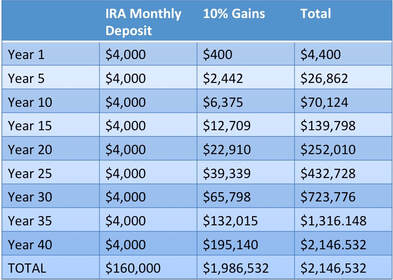
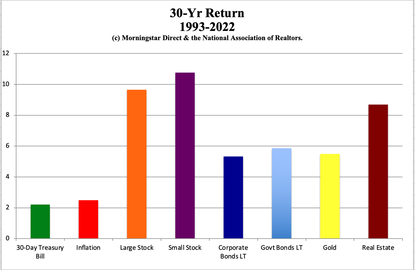
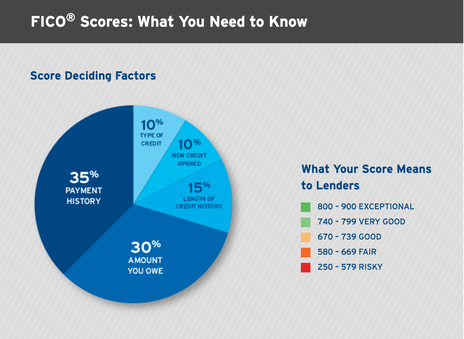
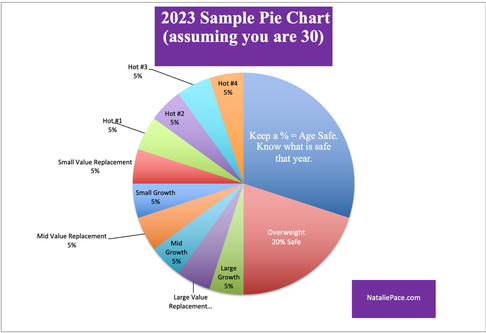
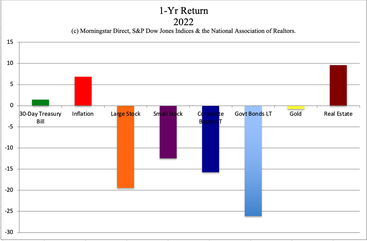
 RSS Feed
RSS Feed